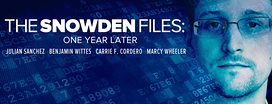Lead Essay
One year after the Edward Snowden NSA revelations, Julian Sanchez reviews what we know and where the public policy debate now stands. He finds that we know incomparably more about telephone and Internet surveillance, and that this knowledge has provoked a significant backlash: The American public, tech companies, and foreign publics and governments have all come increasingly to demand reform. A real debate is underway today, one as we have never seen before. In particular, we now ask the question: What are the consequences of misusing the system, and, if misuse ever arrives, will it then be too late to do anything about it?
Response Essays
Benjamin Wittes argues that the NSA is indeed powerful, perhaps disturbingly so. But what matters most are the legal restraints and authorizations for these programs’ use. Wittes rejects the idea that the United States should unilaterally disarm itself in an international cyber arms race; he would prefer to discuss the specific contours of the rules for digital surveillance. Much as the Fourth Amendment has successfully restrained conventional police, constitutional and legal safeguards should be adequate to protect us from the NSA.
Carrie Cordero reviews the legal safeguards under which the NSA acts. She finds that they are in general adequate, and that subverting them would require either a large-scale conspiracy or massive incompetence by our elected officials. The NSA’s programs target foreigners, who have no constitutional protections, and not U.S. citizens. The agency’s self-reported legal noncompliance rate is exceptionally low, and members of Congress, who have access to classified information about the NSA, have in general signaled their unconcern. While discussion of safeguards can be useful, these safeguards are well in place and generally functioning as they should be.
Marcy Wheeler describes how the overseas storage of U.S. persons’ data provides a means of conducting domestic surveillance: In general, the lack of clear national boundaries on the Internet profoundly compromises all those laws drafted with national boundaries in mind. In particular, the oversight that would ordinarily apply to domestic surveillance fails when U.S. persons’ data can be mined overseas. The fallout of this and other surveillance operations has been costly to the U.S. economy, which depends on the high-tech sector. Much damage has also been done to U.S. soft power abroad, in that foreigners are much less apt to trust either the U.S. government or U.S. corporations. Lastly, the security benefits so far appear to have been negligible.
Related at Cato
Cato Policy Report: “Decoding the Summer of Snowden,” by Julian Sanchez, November/December 2013
Conference: “NSA Surveillance: What We Know, What to Do About It,” October 9, 2013

